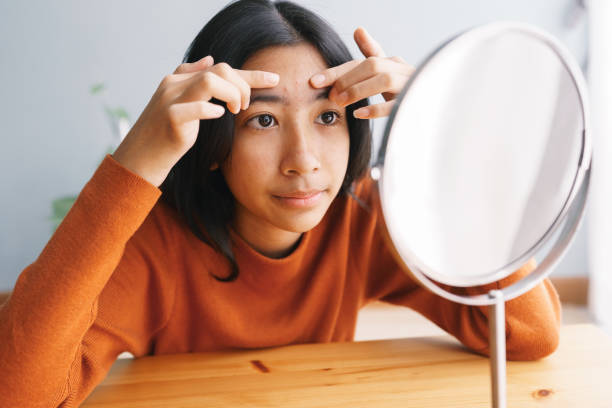How to Treat Teenage Acne
How to Treat Teenage Acne

How to Treat Teenage Acne
Acne, that notorious unwelcome guest, often chooses its victims during the tumultuous teenage years. As a teenager, dealing with acne can be both emotionally challenging and physically frustrating. But fret not! In this comprehensive guide, we'll explore a variety of effective, reliable, and affordable ways to treat acne, boost your self-esteem, and help you regain control of your skin.
Understanding Acne
Before we dive into the solutions, let's grasp the basics of acne. Acne is a common skin condition when hair follicles become clogged with oil and dead skin cells. This can lead to pimples, blackheads, whiteheads, and, in severe cases, cysts or nodules. Understanding the root causes of acne is crucial to choosing the right treatment.
Tips for Teenage Acne Treatment
Start with a Gentle Cleansing Routine
One of the fundamental steps in treating teenage acne is establishing a proper cleansing routine. Use a mild, fragrance-free cleanser to wash your face twice daily. Avoid harsh scrubbing, as it can irritate the skin and make acne worse.
Choose Non-Comedogenic Products
When selecting skincare products, look for those labeled "non-comedogenic." These products are less likely to clog your pores, reducing the risk of new acne breakouts.
Avoid Touching Your Face
Resist the temptation to touch your face, pick at pimples, or pop them. This can introduce bacteria and increase inflammation, making acne worse and potentially leading to scarring.
Balanced Diet and Hydration
A balanced diet with plenty of fruits, vegetables, and whole grains can help maintain healthy skin. Staying hydrated by drinking enough water is equally important as it helps flush toxins from your body.
Manage Stress
Stress can trigger or exacerbate acne. Engage in stress-reduction activities such as yoga, meditation, exercise, or simply taking time for yourself to relax.
Over-the-counter (OTC) Acne Treatments
OTC treatments often contain active ingredients like salicylic acid, benzoyl peroxide, or alpha hydroxy acids. These can effectively treat mild acne and are readily available at your local pharmacy. Start with the lowest concentration and gradually increase if needed.
Topical Retinoids
Prescription retinoid creams or gels, such as tretinoin, can help unclog pores and improve skin texture. These are typically recommended for moderate to severe acne and should be used under the guidance of a healthcare professional.
Oral Antibiotics
For more severe cases of acne, oral antibiotics may be prescribed by a dermatologist. These antibiotics can reduce inflammation and target the bacteria causing the acne.
Birth Control Pills
Oral contraceptives can be effective in managing hormonal acne, particularly in teenage girls. They regulate hormone levels and reduce breakouts.
Isotretinoin (Accutane)
In cases of severe, treatment-resistant acne, isotretinoin may be recommended. It's a powerful medication with potential side effects, so should be used under the strict supervision of a dermatologist.
Consult a Dermatologist
If your acne is stubborn and not responding to OTC treatments, or if it's causing emotional distress or scarring, don't hesitate to consult a dermatologist. They can provide personalized recommendations and may offer advanced treatments like chemical peels or laser therapy.
Home Remedies
Several home remedies can help treat acne. Aloe vera gel can reduce inflammation, while honey has antibacterial properties. Tea tree oil is known for its acne-fighting abilities, but use it sparingly and always dilute it with carrier oil.
Sun Protection
Always wear sunscreen with at least SPF 30 when heading outdoors. Sun exposure can worsen acne scars and increase the risk of post-inflammatory hyperpigmentation.
Patience and Consistency
Remember, treating acne takes time, and results may not be immediate. Be patient and consistent with your chosen treatments.
Boost Self-Esteem
While treating acne is essential, building self-esteem is equally crucial. Remember that acne is common and doesn't define your worth. Focus on your strengths, talents, and the qualities that make you unique.
Conclusion
Acne during your teenage years can be challenging, but it's a battle you can win. By following these tips, you can take control of your skin and your self-esteem. Remember that seeking help from a dermatologist is always a viable option if over-the-counter treatments don't work. Embrace your uniqueness, and don't let acne hold you back from pursuing your dreams and feeling confident in your skin.
